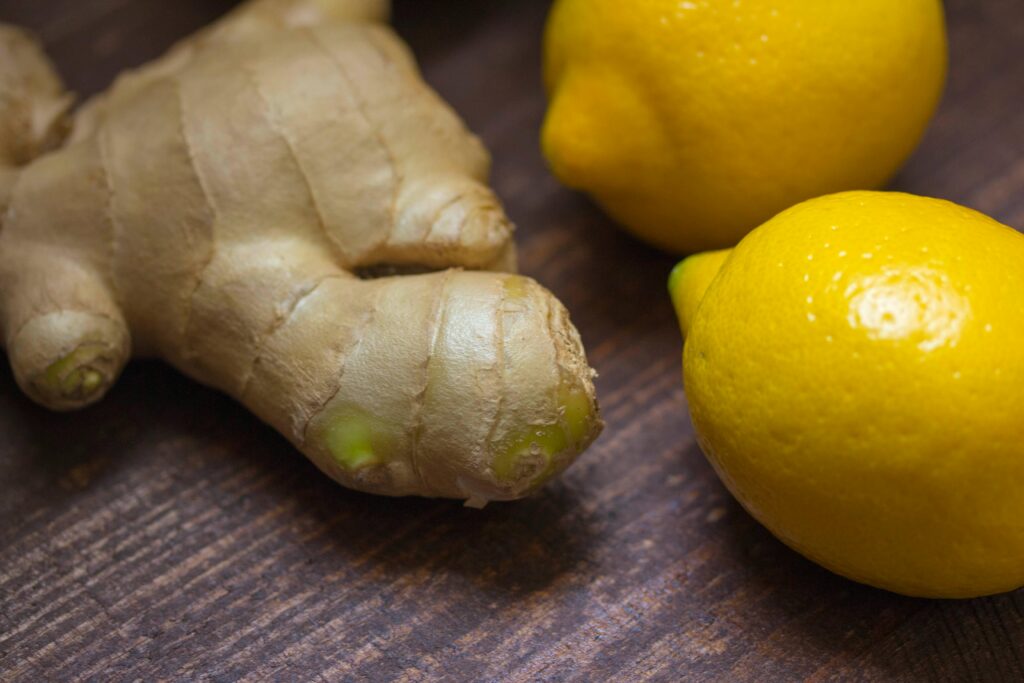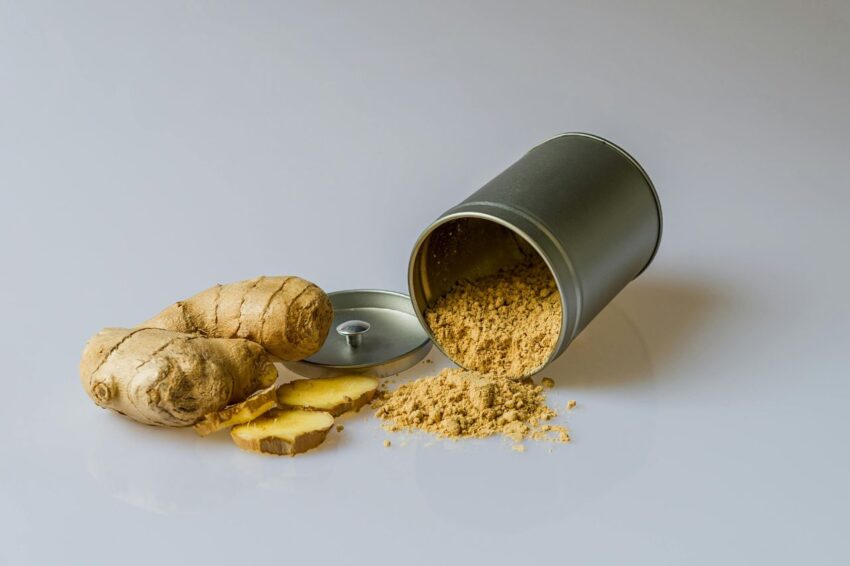A Brief History of Ginger
Ginger, or Zingiber officinale, is no newcomer to the medicinal world. It has been revered for thousands of years in various cultures across the globe, from ancient Chinese medicine to Indian Ayurvedic practices.
In ancient China, ginger was prized for its ability to stimulate the body and improve circulation. Indian Ayurveda still relies on ginger as a natural home remedy for digestive ailments and respiratory issues. Even the Romans, during their empire’s height, imported ginger for its supposed magical properties. This timeless herb has transcended borders, making its way into kitchens and medicine cabinets worldwide.
Why does ginger have such staying power? It’s more than just tradition. Modern science now backs what ancient cultures have known for centuries: ginger is a powerhouse of health benefits.
The Science Behind Ginger’s Healing Powers
What makes ginger so effective as a natural remedy? The answer lies in its bioactive compounds, the most important being gingerols and shogaols. These compounds are what give ginger its anti-inflammatory, antioxidant, and even anticancer properties.
Gingerols, the main active ingredient, have strong anti-inflammatory effects, which help reduce pain and swelling in conditions like arthritis. Shogaols, which form when ginger is dried or cooked, are potent antioxidants, helping the body fight off the damage caused by free radicals.
The impact of these compounds extends far beyond basic health. Scientific studies have demonstrated ginger’s ability to ease nausea, reduce menstrual pain, and even lower blood sugar levels. This potent root is more than just a spice; it’s a veritable health-boosting tool.

Ginger for Digestion: A Gut’s Best Friend
If there’s one area where ginger truly shines, it’s digestive health. Ginger is often hailed as a natural home remedy for all kinds of stomach troubles, from mild indigestion to more serious gastrointestinal issues.
One of the most well-known benefits of ginger is its ability to alleviate nausea. Whether you’re dealing with morning sickness during pregnancy, motion sickness, or nausea caused by chemotherapy, ginger can offer significant relief. Studies show that consuming just 1–1.5 grams of ginger can help reduce nausea.
But ginger doesn’t stop there. It’s also a fantastic solution for indigestion and bloating. By speeding up the emptying of the stomach, ginger can help prevent discomfort and the build-up of gas, ensuring your digestive system runs smoothly.
.
Fighting Inflammation and Pain with Ginger
Inflammation is at the root of many chronic conditions, from arthritis to heart disease. While inflammation is a natural response of the body to injury or illness, when it becomes chronic, it can lead to serious health problems.
Ginger’s anti-inflammatory properties can be a game-changer. Studies have shown that ginger can help reduce the symptoms of osteoarthritis and rheumatoid arthritis, particularly in the knees. In fact, people who took ginger extract experienced less pain and needed fewer pain-relief medications.
But its effects on inflammation aren’t just limited to joints. The compounds in ginger can also reduce muscle pain and soreness after exercise, making it a favorite among athletes. By incorporating ginger into your diet, you can promote quicker recovery and less stiffness.
Ginger as a Natural Immune Booster
In today’s world, where maintaining a strong immune system is more critical than ever, ginger comes through as a reliable ally. Its antioxidant properties help protect the body from harmful pathogens and oxidative stress.
Ginger is particularly effective against respiratory infections, making it a go-to natural home remedy for the common cold and flu. Gingerol, the bioactive compound in fresh ginger, helps reduce the risk of infection by inhibiting the growth of bacteria and viruses. Many people drink ginger tea at the first sign of a sore throat or nasal congestion, knowing that it can help fight off illness before it becomes severe.
Additionally, ginger’s ability to promote sweating also aids in detoxification, further supporting the immune system. So, the next time you feel a cold coming on, reach for a hot cup of ginger tea.
Weight Loss and Ginger: Can It Help?
For those looking to shed a few pounds, ginger can be an unexpected yet effective aid. While ginger isn’t a magic bullet for weight loss, it has properties that can support your overall goals.
One way ginger helps with weight management is by increasing feelings of fullness. This means you’ll likely consume fewer calories throughout the day without feeling deprived. Additionally, ginger can boost your metabolism, encouraging the body to burn calories more efficiently.
Research also suggests that ginger can help regulate blood sugar levels, which is key to avoiding energy crashes and cravings for unhealthy snacks. When paired with a balanced diet and regular exercise, ginger can certainly help you on your weight loss journey.
Ginger and Heart Health: Protecting Your Most Vital Organ
Your heart works tirelessly to keep your body running, and ginger can offer some much-needed support. Heart disease remains one of the leading causes of death worldwide, but the good news is that ginger may help protect your heart in several ways.
Ginger’s anti-inflammatory and antioxidant properties play a role in reducing risk factors for heart disease. Studies show that ginger can help lower cholesterol levels, reduce blood pressure, and prevent blood clots—all of which are crucial for maintaining a healthy heart.
Moreover, ginger’s ability to regulate blood sugar levels not only supports weight management but also reduces the risk of type 2 diabetes, another major contributor to heart disease. By adding ginger to your daily routine, you’re not just spicing up your meals—you’re actively supporting your heart health.
Ginger for Skin and Beauty: A Natural Glow
Ginger isn’t just beneficial on the inside—it can work wonders for your skin, too. Its antioxidant and anti-inflammatory properties make it a powerful ingredient for skincare.
Ginger can help improve the appearance of your skin by promoting circulation and reducing inflammation. It’s especially useful for people dealing with acne, as ginger’s antibacterial properties help clear up blemishes while soothing irritated skin.
But that’s not all. Ginger is also a popular ingredient in anti-aging treatments. The antioxidants in ginger protect the skin from damage caused by free radicals, helping to prevent fine lines and wrinkles. For a natural glow, consider using ginger-infused products or even making your own ginger-based face masks at home.
Easy Ways to Add Ginger to Your Daily Routine
With so many benefits, it’s no wonder you’re eager to add more ginger to your life. Luckily, there are countless ways to incorporate this superfood into your daily routine.
Start with something simple like ginger tea, which is incredibly easy to make. Just steep fresh ginger slices in hot water, and add a bit of honey or lemon for extra flavor. For those who prefer something more convenient, ginger supplements are widely available in the form of capsules or powders.
You can also use ginger in cooking. Add grated ginger to stir-fries, soups, or smoothies for a subtle spicy kick. If you enjoy baking, ginger is a wonderful addition to cookies, cakes, or bread. Don’t be afraid to experiment—ginger’s versatility knows no bounds.
Conclusion: Embrace Ginger as Your Natural Remedy
Incorporating ginger into your daily routine is one of the simplest, most effective ways to support your overall health. From soothing digestion and reducing inflammation to boosting your immune system and even promoting heart health, this ancient root is nothing short of miraculous.
Whether you’re looking for a natural home remedy for a specific condition or just want to improve your well-being, ginger is a time-tested healer that can make a world of difference. So why not start today? Add a bit of ginger to your life and experience the magic for yourself.

